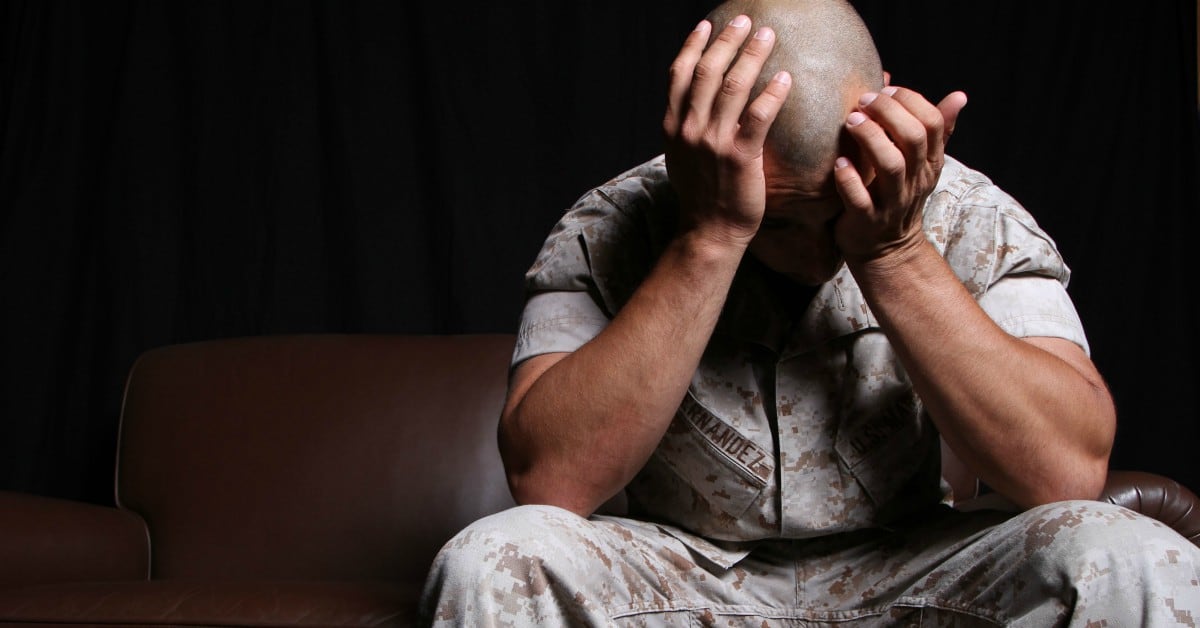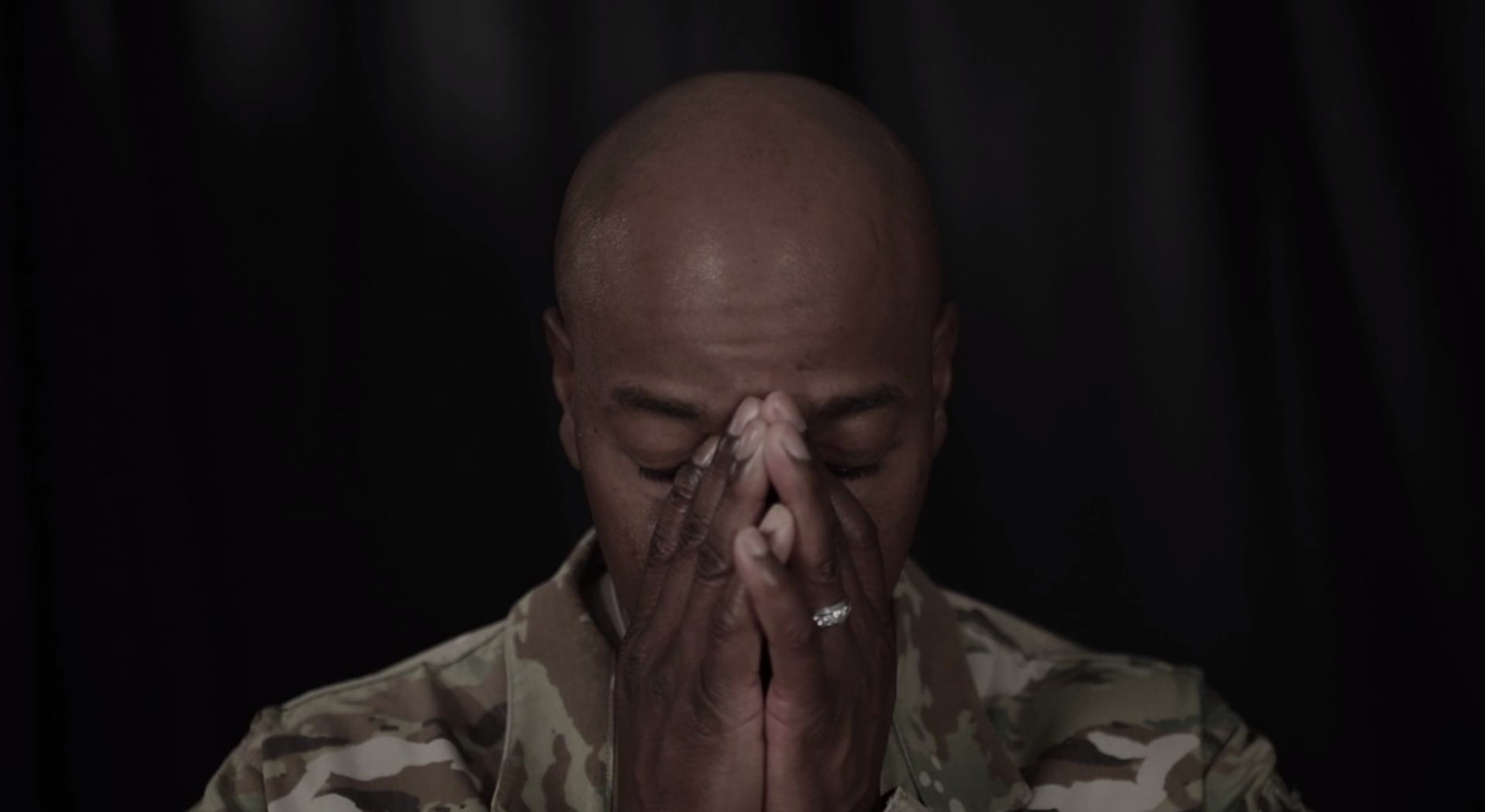A total of 77 Marines ― 58 active-duty Marines and 19 reservists ― died by suicide in 2018, Marine Corps Manpower and Reserve Affairs said Thursday.
Those approximate numbers initially were released by the Marine Corps in January, showing that 2018 had a 10-year high suicide rate in the Marine Corps.
The Marine Corps suicide rate was highlighted again in September as the military’s 2018 Annual Suicide Report was publicly released. The rate of active duty service members who take their own lives has been rising an average of 6 percent per year throughout the past five years, the Pentagon announced Thursday.
“We all have a role in suicide prevention: individual service members, unit leaders, families and mental health professionals,” Marine Corps Commandant Gen. David Berger said in a Thursday Marine Corps press release.
“Just as we talk about physical fitness, marksmanship, training and education ― Marines must also be comfortable discussing life’s struggles, mental wellness and suicide,” he said.
RELATED

There was a decrease in suicides in the first eight months of 2019 compared to the first eight months of 2018, the report also noted. As of August, 33 Marines had taken their own lives, compared to 43 at the same point in 2018, according to the report.
Here are the 2018 active-duty suicide numbers broken down by service (several of the reserve component branches do not have a rate, because they have fewer than 100,000 members):
- Army: 139 for a rate of 29.5
- Marine Corps: 58, for a rate of 31.4
- Navy: 68, for a rate of 18.5
- Air Force: 60, for a rate of 18.5
- Army Reserve: 48, for a rate of 25.3
- Marine Corps Reserve: 19
- Navy Reserve: 11
- Air Force Reserve: 3
- Army National Guard: 118, for a rate of 35.3
- Air National Guard: 17
The majority of Marine suicide cases in 2018 included younger Marines who had not seen combat, Marine Corps Times previously reported. About 63 percent of the suicides in the Corps in 2018 were Marines 25 years old or younger.
The Marine Corps says it is working to educate Marines on signs of suicide and to create an environment where Marines feel comfortable talking about their mental health.
Marine leaders must “create a culture in which seeking help and self-improvement are not harmful or signs of ‘weakness,’” the Corps said.
Many of the Marines who died by suicide had sleep issues and chronic pain, the Marine Corps said, recommending Marines to be on the lookout for those two issues as well as knowing the dangers of sleep and pain medications.
RELATED

Suicide rates are up across the country, per the Centers for Disease Control and Prevention. High suicide rates are not only is affecting active duty Marines, but veterans as well.
Carol Rasor-Cordero said the military’s culture of keeping silent when it comes to mental health led to the 2017 suicide of her son Joseph Rasor, a Marine veteran who served in Iraq and Afghanistan.
“He was very skilled at hiding it from me,” said Rasor-Cordero a retired deputy with the Pinellas County, Florida, sheriff’s Office, who spent 15 years on its crisis negotiation team.
“I talked other people out of suicide, I could not help my own son and I have to live with that,” she said.
Rasor-Cordero ― who is a board member of the nonprofit Veterans Counseling Veterans, which connects veterans in the mental health professions with veterans and families seeking help ― said the Marine Corps should do a full mental health evaluation to all Marines returning from a war zone.
“You’re asking people to do a job that’s not within the normal scope of what people are exposed to physically or emotionally, so why aren’t you taking better care of them when they come back?” Rasor-Cordero said. “No one should be falling through the cracks.”
The Marine Corps recommendations said that Marine leaders should monitor all Marines they command, especially high-performers that may not be showing obvious signs of suicide.
Marine Col. Jim Turner was one of those high performers who was able to hide his symptoms of post traumatic stress disorder from his chain of command, according to his former wife, Jennifer Turner.
Jim Turner was an F-18 pilot who later became an infantry officer, taking part of the invasion of Iraq in 2003. He then spent a decade working for U.S. Central Command at MacDill Air Force Base in Florida, working alongside other high ranking officers and developing a friendship with Army Gen. David Petraeus, Jennifer Turner told Marine Corps Times.
In December 2018, Jim Turner took his life outside of the Bay Pines, Florida, Veterans Affairs complex, three years after he retired.
“The higher you get up the more responsibility you have, but you can’t be known to be on ... anti-depressants, or you’re not going to get that next promotion," Jennifer Turner said. “There’s a stigma to it.”
The Veterans and Military Crisis Line provides 24/7 confidential support for service members and family members. It can be reached at 800-273-8255, by texting 838255 or online chat.




